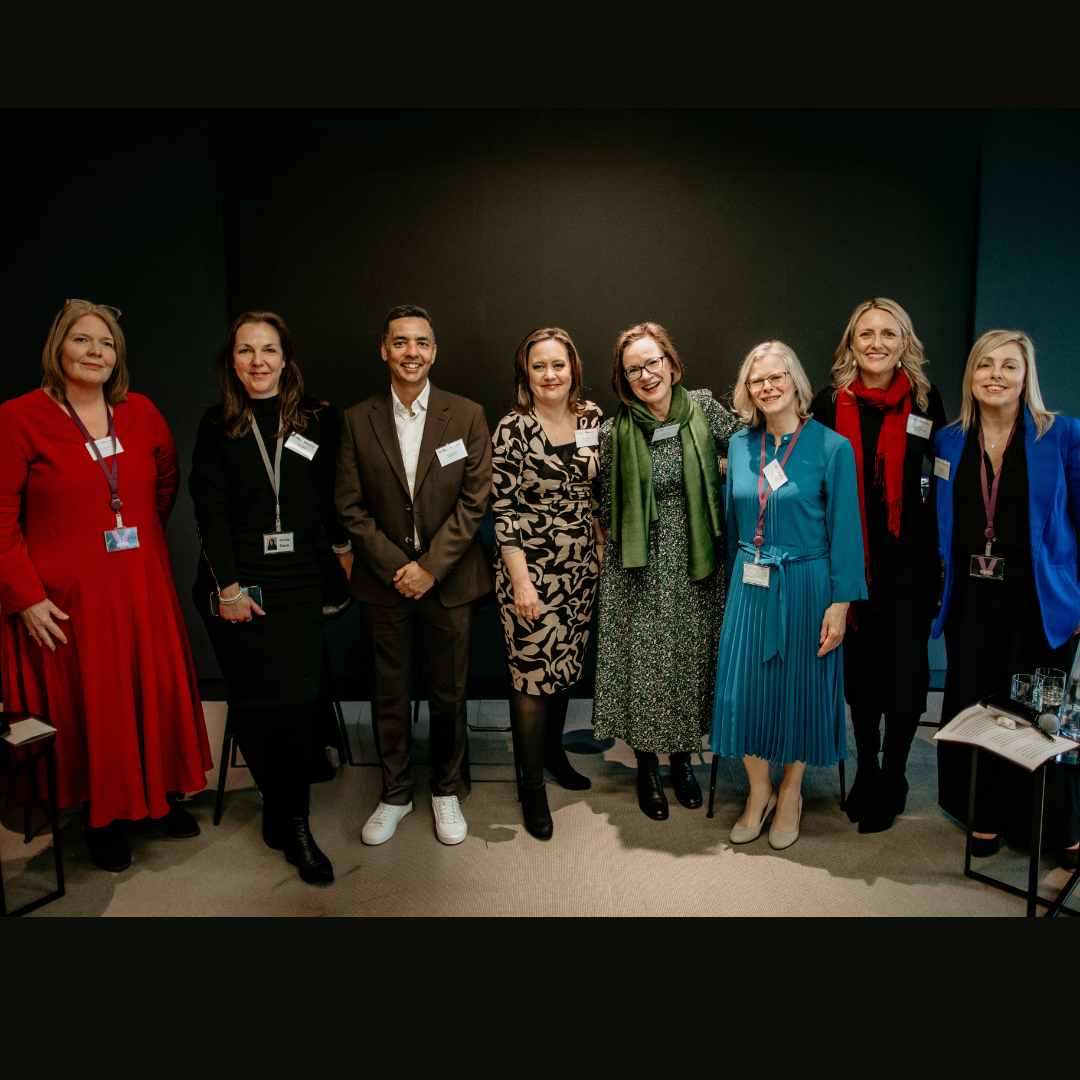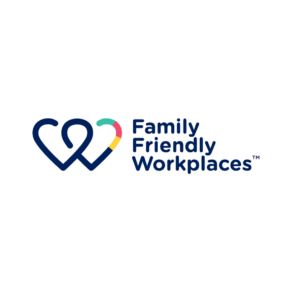Building Family-Friendly Workplaces of the Future: Insights from the Family Friendly Workplaces Launch
Published: 28 Mar 2025

The launch of the Family Friendly Workplaces certification brought together leaders from business, government, and charities with a shared goal of building workplaces that work for the 80% of employees with caring responsibilities.
The pandemic was a turning point for flexible working. As Jitender Arora, partner at North and South Europe and CISO at Deloitte UK, said, it showed that work and family life aren’t separate worlds, but deeply connected. Now, as flexible working has moved into the mainstream, many employers are seeing the real business benefits of a family-friendly approach. For those looking to evolve alongside changing societal expectations, the UK’s first certification for family-friendly workplaces set against a global set of standards could not be more timely.
Setting the Standard: What the Certification Offers
The Family Friendly Workplaces certification is new to the UK but has already had a major impact in Australia, where it was founded. When Australia introduced parental leave in 2010, many employers tried to build family-friendly policies from scratch, but without a clear framework they often missed the mark. Research by Family Friendly Workplaces Australia found that two in three working parents were so stressed by managing work and family life that it was affecting their wellbeing.
What was missing was a clear set of global standards for what ‘good’ looks like. As Emma Walsh, CEO of Family Friendly Workplaces Australia, explained:
“We need standards to anchor us, that we can all unite behind. Having research and evidence behind a framework makes it simple for employers to get involved.”
And it works. Since launching in Australia, the certification has helped employers increase engagement with managers, improve retention, and boost productivity.
Jane van Zyl, CEO at Working Families, pointed out that UK research echoes these findings:
- 7 in 10 managers say flexible working improves performance.
- 76% report an increase in productivity.
Jane went on to add that “family-friendly working should no longer be seen as an added-extra, but as a fundamental business enabler.”
Now, the Family Friendly Workplaces certification is backed by leaders across business, government, and the charity sector as it launches in the UK.
The Business Case for Family-Friendly Workplaces
The message from the panel was clear: this isn’t just about creating inclusive, supportive workplaces – it’s about growth for businesses and for the UK economy.
Companies that embed family-friendly working see the returns:
- Dentsu follows the Japanese philosophy that “what’s good for people is good for business.”
- Deloitte found a flexible solution for an employee who needed to relocate. As Jitender Arora explained, “She has the same skills, the same experience – but now she feels she belongs to the organisation more than ever before, and has a real sense of connection and care.”
- TLT LLP has doubled in size since 2020 while championing a flexible, people-first approach.
Helen Hodgkinson, Chief People Officer at TLT, summed it up:
“I’m a sandwich carer, and I’ve got a big job, but I can manage it all as long as I’m trusted to deliver.”
Her organisation has built what she calls ‘engagement capital’ and they’re not about to waste it; “As an organisation, we’ve held onto it and cherished it, and we have people delivering for us in spades as a result.”
Companies are also listening more closely to employees. When Deloitte found that more than half of women said better parenting leave for partners would help their careers, they equalised parental leave pay. Understanding why policies matter, and backing them up with personal stories, makes the business case even stronger.
Measuring Success
For leaders making the case for family-friendly working at board level, the challenge is often how to quantify the impact. That’s why the certification includes impact measurement, showing the effects on:
Productivity
Engagement
Inclusion
Retention
As Jitender Arora put it:
“Building a sense of belonging, attracting the right talent, and reducing hiring costs, the business case soon stacks up.”
And then there’s the ‘why not?’ argument. With so many people needing flexibility, and evidence that it helps close the gender pay gap, boosts workforce participation, and strengthens the economy, it just makes sense.
The businesses that have signed up to the certification are leading the way. As Jitender said:
“If we can show how it’s done, it gives the framework for others to follow.”
Flexible Working: What’s Next?
Susan Clews from Acas shared the latest research on how flexible working is evolving:
- Hybrid working and flexing around core hours are the biggest trends.
- Informal flexible working arrangements are far more popular than statutory flexible working requests, likely because employees worry about the stigma, and employers feel tied down by formal requests.
- 93% of those not in jobs would work flexibly if given the chance.
- Employers are increasingly seeing the strategic benefits, integrating family-friendly policies with absence and time-off policies for a more cohesive approach.
And that’s where certification helps. It gives organisations a clear roadmap, measuring where they are now and helping them take the next steps towards realistic, meaningful goals.
Lived Experience of Why flexible working matters
Charlie Beswick, advocate and author of Our Altered Life, spoke candidly about how important work is for the 14% of the workforce who are carers:
“It is not just a job, it’s a lifeline. For a carer, working is possibly the only opportunity they have to socialise with other adults, it’s the opportunity for personal and professional development, it’s a chance to be something other than a carer and reclaim a bit of your identity.”
Without a family-friendly approach, many carers are simply locked out of the labour market, evidenced by the 600 carers who leave the workforce every day. Charlie explained how making small adjustments to accommodate carers needs pay dividends for employers:
“When you give a carer an inch, they’ll give you 10 miles back. Employers would be surprised at how much little carers expect, and how much you’ll get in return.”
With many carers not recognising themselves as carers (it takes on average two years to acknowledge their role) employers can take a central role in carers accessing the support they need.
“The most powerful thing an employer can say to a carer is ‘tell us what you need.’ Introducing those choices gives us a psychological safety net, and the reassurance and knowledge that we won’t be stigmatised and we are going to be supported.”
By empowering parents and carers to confidently navigate the demands of work and home life, the certification guarantees you’ll be getting the best from them.
How it ties into Government Plans to ‘Make Work Pay’
Fair employment rights and progressive workplace practices have been identified as key pillars of the government’s plan for growth. Important developments are being made to the Employment Rights Bill, which seek to strengthen protections for workers, improve access to flexible working, and enhance security for those in insecure employment. These changes underscore the critical role that workplace policies play in shaping a fairer and more inclusive labour market.
Minister Justin Madders, Parliamentary Under-Secretary of State at the Department for Business and Trade, explained in his closing remarks via video:
“Flexible, supportive workplaces represent the future of our modern economy. Genuine two-sided flexibility allows businesses to access talented workers. Employers benefit from a wide range of expertise and a diverse workforce. When individuals are empowered to progress their careers without sacrificing their family lives, we see how these practices have a ripple effect across families, communities, and society.”
The Movement Towards a Family-Friendly Future
As Emma Walsh put it, we are witnessing a work-life revolution. The way we think about work and life is being redesigned, and everyone benefits, because everyone belongs to a family or community that deserves their time and attention.
Jane van Zyl acknowledges, the change the certification can bring is seismic:
“Employers can be enormously influential in facilitating a more equal, healthy society. The Family Friendly Workplaces accreditation enables the change families need on a global scale by being the gold standard that employers aim for. By supporting parents and carers, employers are supporting their businesses to thrive, and economies to grow.”
The message from the Family Friendly Workplaces launch was simple: flexibility isn’t a ‘nice to have’ – it’s the future of work.

Family Friendly Workplace Certification
Family Friendly Workplaces™ is a global movement to transform the future of work through family-friendly policies that support wellbeing, inclusion, and gender equality.